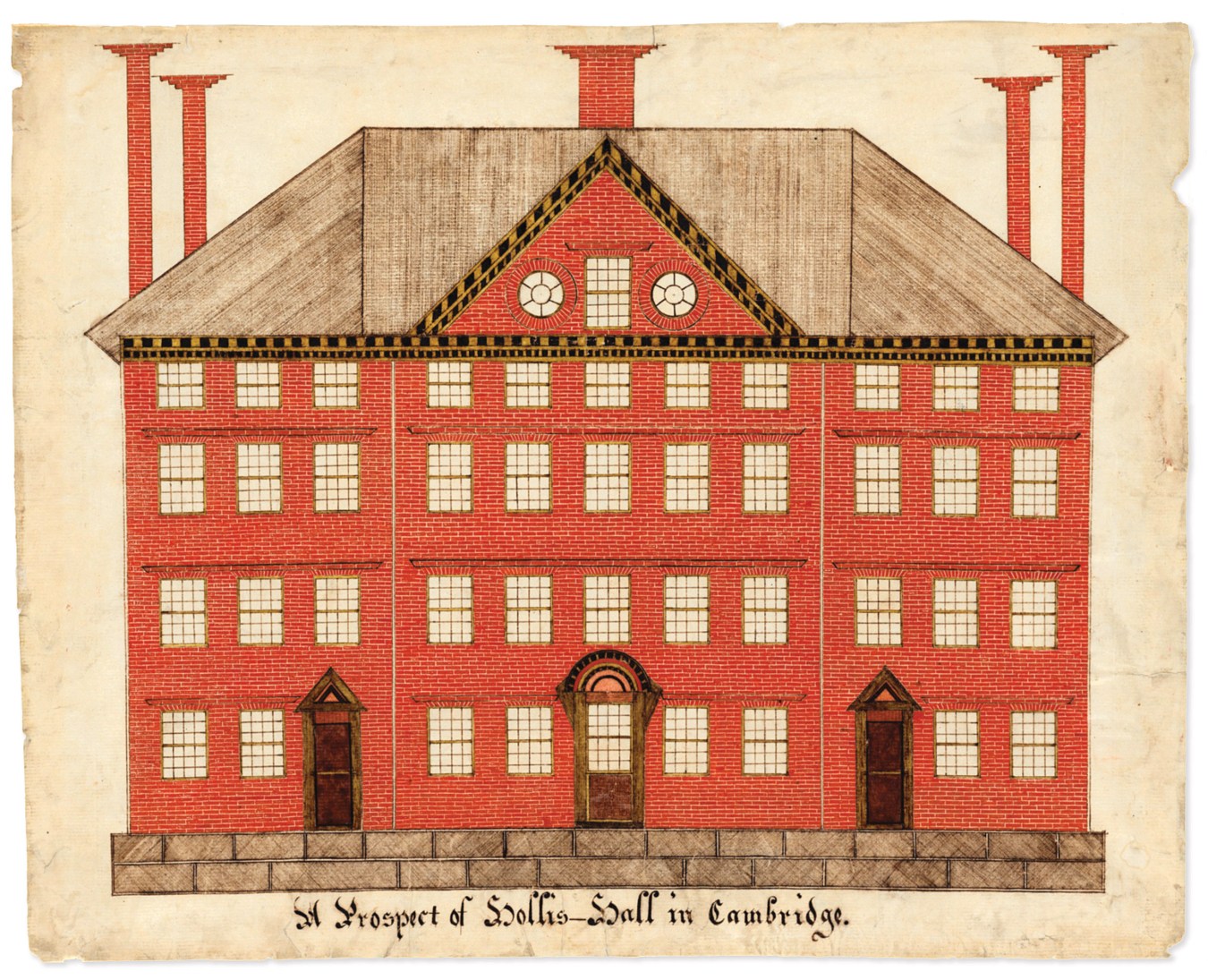“At the chamber of their Classmate Adams”
In digging into the ways that Charles Adams broke the rules of Harvard College, I’m skipping the many times he was punished for being absent or tardy from prayers and recitations.
Those were minor offenses that the college usually dealt with in bulk. Even though they built up on Charles’s record (unlike his older and younger brother’s), they weren’t enough to cast serious doubt on his college career. He appears to have been keeping up his studies well enough.
But the official college faculty minutes, volume 5, also record a more serious offense, discussed "At a meeting of the President, Professors and Tutors April 2. 1787”:
The faculty then went on to another student in the same class: Daniel Russell (1769-1804). That was the third and youngest surviving son of Thomas Russell (1740-1796), a merchant who lived in Charlestown and then Boston. That gentleman did extensive overseas trade and was active in many charitable societies. In 1788 Russell would be chosen a General Court representative and delegate to Massachusetts’s ratification convention, and the next year a member of the governor’s council.
Daniel’s educators determined that he was leading “a very dissipated life,” was “exceedingly idle and inattentive to his studies,” and was “in the way of increasing and strengthening the ill habits which have already taken too deep hold of him.” They therefore asked his father to take Daniel away and have him educated by “a Gentleman in the Country”—they recommended a particular minister in Weston—until September.
Notes on this meeting record added that Thomas Russell had immediately taken Daniel out of college and that “The censure voted to take place upon Adams 4th was inflicted a few mornings afterwards in the Chapel.”
Thus, while Harvard disciplined Charles Adams for hosting a rowdy gathering, his situation could have been worse.
TOMORROW: It gets worse.
Those were minor offenses that the college usually dealt with in bulk. Even though they built up on Charles’s record (unlike his older and younger brother’s), they weren’t enough to cast serious doubt on his college career. He appears to have been keeping up his studies well enough.
But the official college faculty minutes, volume 5, also record a more serious offense, discussed "At a meeting of the President, Professors and Tutors April 2. 1787”:
It appeared by the minutes of an examination at a prior meeting, that on the afternoon of Monday the 19th of March last, several of the Sophimores were at the chamber of their Classmate Adams 4th, at which chamber there was much noise and disorder:—That there was the like noise and disorder at the same chamber for a considerable part of the evening.That was the same punishment that the faculty had imposed on a couple of juniors the previous month for a similarly loud drinking party. (Note that there was no mention of alcohol in Charles Adams’s room, just noise.)
It also appeared, that while the company were together, language shockingly profane was at times used, and was heard, not only by persons in neighboring houses, but by some far distant, which conduct being greatly to the dishonor of the College, as well as violation of the divine Laws, and it being highly incumbent upon this Government to do every thing in their power to put an end to conduct so inconsistent with the reputation and good morals of the Society
Voted, that Adams 4th, at whose chamber this disorder took place and continued be fined the sum of six shillings, and receive a public admonition.
The faculty then went on to another student in the same class: Daniel Russell (1769-1804). That was the third and youngest surviving son of Thomas Russell (1740-1796), a merchant who lived in Charlestown and then Boston. That gentleman did extensive overseas trade and was active in many charitable societies. In 1788 Russell would be chosen a General Court representative and delegate to Massachusetts’s ratification convention, and the next year a member of the governor’s council.
Daniel’s educators determined that he was leading “a very dissipated life,” was “exceedingly idle and inattentive to his studies,” and was “in the way of increasing and strengthening the ill habits which have already taken too deep hold of him.” They therefore asked his father to take Daniel away and have him educated by “a Gentleman in the Country”—they recommended a particular minister in Weston—until September.
Notes on this meeting record added that Thomas Russell had immediately taken Daniel out of college and that “The censure voted to take place upon Adams 4th was inflicted a few mornings afterwards in the Chapel.”
Thus, while Harvard disciplined Charles Adams for hosting a rowdy gathering, his situation could have been worse.
TOMORROW: It gets worse.


No comments:
Post a Comment